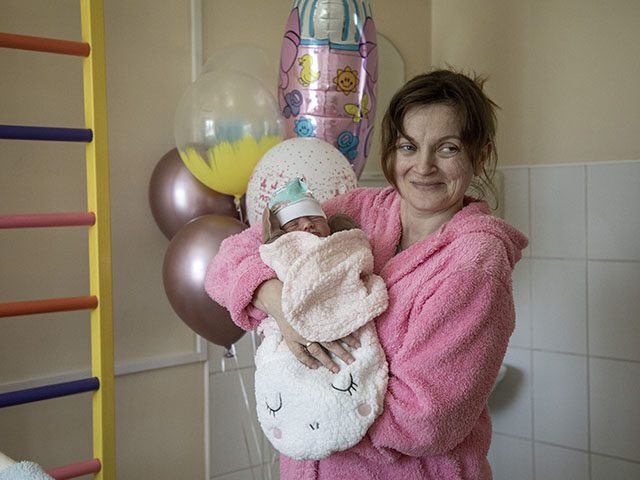Thousands of pregnant Russian women have traveled to Argentina to give birth to their children in the South American nation, which automatically grants Argentine citizenship to the newborn child and grants both parents an easy pathway to Argentine citizenship and passports.
Since 2022, as a result of Russia’s ongoing invasion of Ukraine, thousands of Russian pregnant women and Russian citizens generally have flocked to Argentina, a country that, while is facing a severe economic situation under a leftist government that has allowed China to exert significant pressure on it, has historically maintained lax migrant laws and offers easy paths towards residency and citizenship to foreigners under a process that only take two years or less, depending on the case.
The prospect of obtaining Argentine passports has enticed Russians to seek Argentine citizenship, as an Argentine passport presently allows them to exercise more unrestricted movement around the world compared to Russian passports and potentially serves as a pathway into entering other countries, including the United States or European Union countries.
The trend of giving birth in Argentina, dubbed “medical tourism,” is the product of the country offering inexpensive and relatively high-quality care to foreigners. Reports published in January suggest that pregnant Russian women pay about $3,000 to specialized agencies for a birth “package” that includes tickets, lodging, Russian-Spanish translation services, finding an obstetrician, and arrangement in healthcare facilities to schedule the child’s birth.
Argentina and Russia signed an agreement in 2009 to suppress visa requirements for travelers of both countries.
More than 23,000 Russian citizens entered Argentina in 2022, according to the nation’s migrant authorities, out of which roughly 10,500 were pregnant women. Some Russian citizens have stated that they prefer Argentina’s downtrodden economy and over-100-percent inflation rate to Russia during the “special operation” against Ukraine.
The continued influx of Russian citizens into Argentina has raised the alarms of the South American nation’s authorities, who have denounced people and/or organizations that sell travel packages to pregnant Russians as part of a ” mafia” under investigation by Argentine’s justice system. Several Russian citizens with ties to Russian mafia organizations have been detained by Argentine police authorities during the past few months.
In February, Argentina’s federal police raided two luxury apartments, seizing computer and phone devices, documents, cash, and other items as part of an ongoing investigation into allegations of “irregular maneuvers” by Russian citizens to give birth in the country.
Argentine Federal Judge María Romilda Servini said in February that federal investigators identified a criminal organization exploiting Russian families with high purchasing power seeking to enter Argentina, charging between $20,000 to $35,000 for false documentation that would allow the families to obtain Argentine citizenship “in record time” and, in the case of pregnant women, arrange for the child’s birth.
“The birth of their children and obtaining citizenship was for the sole purpose of being able to emigrate to other countries, such as those in Europe or the United States, since the Russian passport is not accepted for entry into those countries,” the judge’s statement read.
The influx of Russian citizens has prompted the South American nation’s migrant authorities to tweak but not outright reform its lax migration controls. Last week, Argentina’s National Direction of Migration updated the minimum requirements for foreigners to prove their status as foreign rentier or pensioner — another pathway towards obtaining residence in Argentina. After the changes, a foreigner who wishes to obtain residence in Argentina as a rentier must pay $24,000 for each member of the family from the income they produce, or from any other lawful income from external sources, up from a single $20,000 payment for all members of the rentier’s family.
Argentine law states that all individuals born in its territory are granted Argentine citizenship regardless of the nationality of their parents, with the exception of children of foreign ministers or foreign diplomatic representatives stationed in Argentina. Children born outside of Argentina from an Argentine mother or father are also eligible to obtain Argentine citizenship.
Foreigners are also eligible to obtain Argentine citizenship by naturalization through a federal court provided that they show certified proof of having spent two years of uninterrupted and documented residence in the country. This requirement is waived for individuals that are either married to a native Argentine citizen or have a native Argentine child, which significantly cuts down the amount of time required for a foreigner to obtain an Argentine passport.
The Henley Passport Index, which maintains a global ranking of the world’s passports based on the travel freedoms and/or restrictions that it confers to its corresponding citizens, ranks Argentina’s passport as the 19th best in the world, as it allows for travel to 170 countries without hte need to obtain a travel visa, including the United Kingdom and the European Union. In contrast, Russian passports rank 52th according to Henley’s chart.
As Argentina is a member of the MERCOSUR trade bloc, Argentine passport bearers can temporarily reside in any member-state of the trade bloc for up to two years, with a path to permanent residence provided they comply with the requirements. MERCOSUR member states include Argentina, Brazil, Paraguay, and Uruguay. Venezuela is also a member of the trade bloc, but remains suspended since 2016 in response to the human rights abuses and violations of the bloc’s trade rules committed by the socialist regime of dictator Nicolás Maduro.
Christian K. Caruzo is a Venezuelan writer and documents life under socialism. You can follow him on Twitter here.

COMMENTS
Please let us know if you're having issues with commenting.